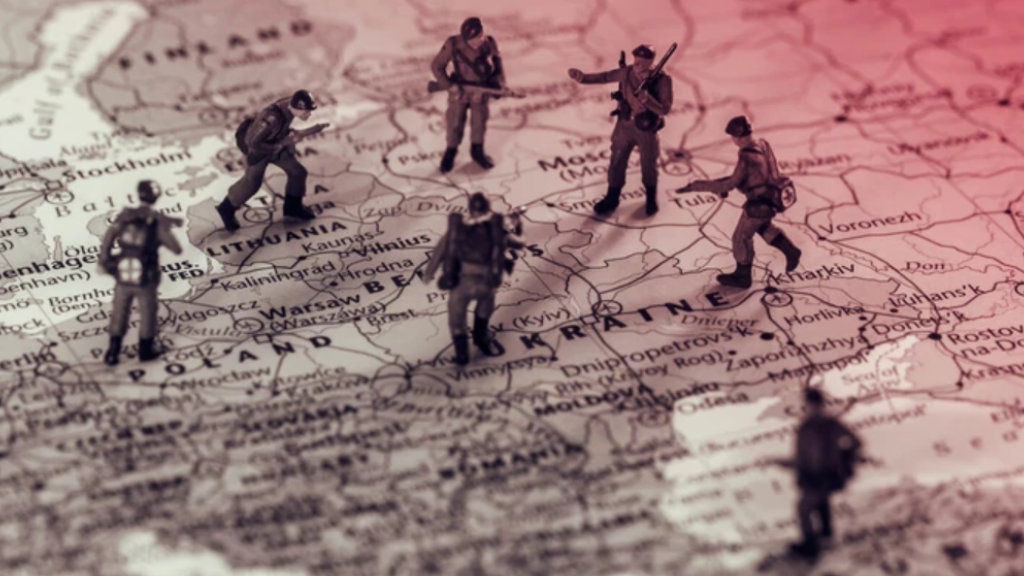Russia has been holding security discussions in Moscow with multiple countries and has proposed that as Russia is now actively involved in the process of forming a new Eurasian security structure, several European countries should become part of any new Eurasian security system, according to Alexander Grushko, the Russian Deputy Foreign Minister. Russia believes that in the future, the Balkan states, as well as some Eastern European countries, such as Hungary and Slovakia, may join it, as well as Asian countries.
Grushko said that the drivers of economic growth and political influence are moving to the East and that NATO and the European Union have ceased to be the only decision-making centers. He said that “These countries and leaders will be aware and understand what the main vector of development of international relations is and will probably understand that remaining outside this Eurasian process will be counterproductive for their economic, political, and other positions.”
The 13th International Meeting of High Representatives for Security Issues was held in Moscow on May 27–29. More than 129 delegations from 105 countries, including BRICS, SCO, ASEAN, CIS, the League of Arab States, the African Union, CSTO, and other international organizations, took part in the international dialogue on the future architecture of global security. Russian President Vladimir Putin spoke of the need to create an equal and indivisible security system, saying that the basis for creating a new system could be the existing multilateral interaction formats, in particular the Shanghai Cooperation Organization (SCO), the Eurasian Economic Union (EAEU), the Collective Security Treaty Organization (CSTO), and the Association of Southeast Asian Nations (ASEAN).
At the same time, he stated that it should be open, among other things, to EU and NATO member states. Belarus, last year, put forward an initiative to adopt, at the level of heads of state, the Eurasian Charter of Diversity and Multipolarity in the 21st Century – designed to set out a vision of the framework for interstate cooperation.
Russia and Belarus plan to present a draft charter at the Third International Conference on Eurasian Security, which is scheduled to take place in Minsk this autumn. The Russian Foreign Ministry has said that the document could become a normative superstructure for the Eurasian security architecture. It is also likely that some European countries will take part in the Minsk event. Last year, former Serbian Deputy Prime Minister Aleksandar Vulin and Hungarian Foreign Minister Peter Szijjarto both attended.
Russian Foreign Minister Sergey Lavrov also noted that, in addition to Hungary, Slovakia is showing interest in the concept of new Eurasian security. Bratislava has noticeably intensified contacts with Moscow at the highest level over the past six months, with Slovak Prime Minister Robert Fico visiting Russia twice during this period.
The conflict in Ukraine has become the biggest challenge to the European security system. Russia has repeatedly pointed out the need to resolve its root causes, including preventing NATO expansion to the East. Russian Foreign Minister Sergey Lavrov said on May 28 that Ukraine’s return to a neutral, non-aligned, non-nuclear status is one of Russia’s conditions for resolving the crisis. At the same time, NATO has not officially abandoned its “open door” policy, according to which the alliance allows that Ukraine may sooner or later join the bloc.
In addition, NATO and the EU continue to increase military activity near the borders with Russia and build alliances without Moscow’s participation. On May 28, the head of European diplomacy, Kaja Kallas, presented the new EU strategy for the Black Sea region developed by the European Commission. She noted that the European Union seeks to establish control over the safety of navigation in the Black Sea with the cooperation of all coastal states except Russia.
Currently, the Eurasian security system is mainly represented by Russia and Belarus, as well as the CSTO. Cooperation with structures in which Russia is present could meet the interests of Eastern European and Balkan countries.
For example, Hungary is interested in the Turkic world and China, in addition to its membership in NATO and the EU. In addition, there are Balkan countries, such as Serbia, which do not seek to join NATO.
Vladimir Bruter, of the International Institute of Humanitarian and Political Research, says that joining a Eurasian security system could be of interest to other countries of Central and Eastern Europe, in particular Austria, Bulgaria, Croatia, and Romania, saying that “These countries do not trust Western Europe very much. They believe that it uses their citizens as cheap labour.”
An example is the results of the presidential elections in Romania, where about half of the voters supported the right-wing candidate George Simion. At the same time, participation in the Eurasian security system for Eastern European countries would not necessarily mean their withdrawal from NATO and the EU. Bruter said, “It would be better for them to be under the American military umbrella and at the same time maintain positive economic relations with the East.”
Poland and the Baltic states would not wish to join such an alliance, however, with Bruter explaining that Warsaw sees itself as a regional leader, while Estonia, Latvia, and Lithuania are focused on maintaining an alliance with the United States and Great Britain.
Further Reading
Russia-China Security Talks In Beijing

 Русский
Русский













